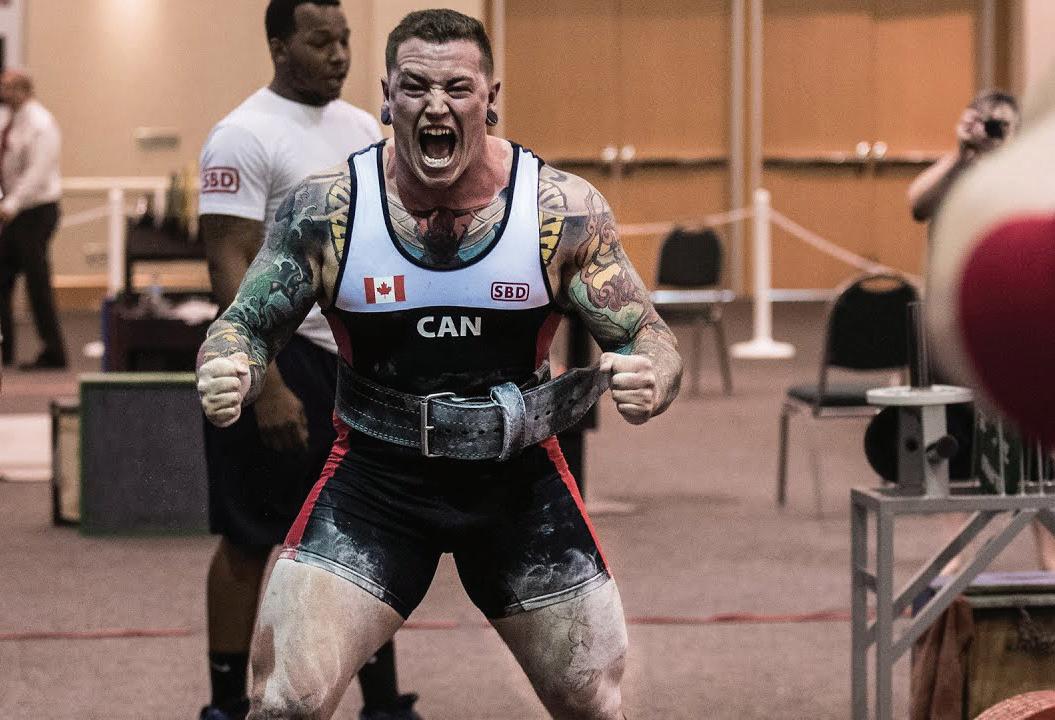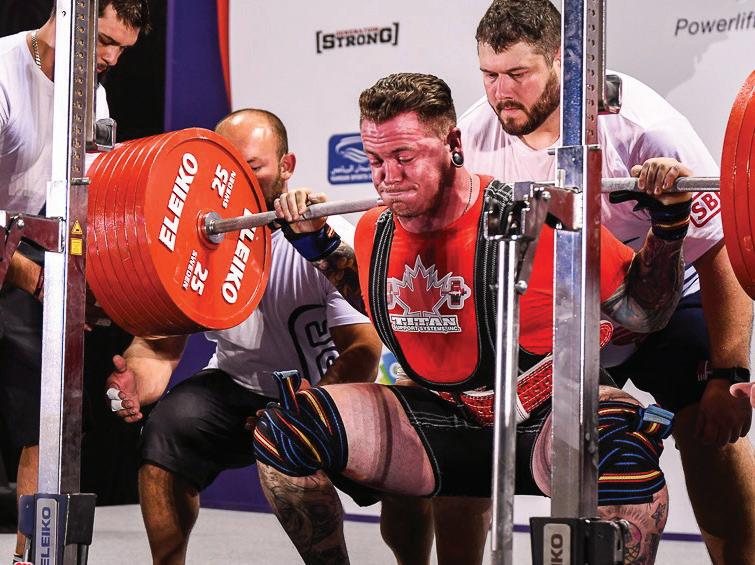
4 minute read
Champion powerlifter reveal his
LIFESTYLE Heart of a champion
Calgary powerlifting champion finds new strategies for staying competition ready
Advertisement
Bryce Krawcyzk is a Calgary-based championship powerlifter, former IPF world record holder, trainer and owner at Calgary Barbell. PHOTO: IPF WORLD 2016 RECAP/YOUTUBE
HALEN KOOPER hkooper@cjournal.ca
Calgary-based championship powerlifter Bryce Krawcyzk has had to put many athletic plans on hold due to the pandemic. He’s still managed to remain in shape by training at home.
But COVID-19 has forced him to change who he’s competing against and how he’s helping others bulk up.
Krawczyk started to powerlift when he was 24 years old because he felt he was too skinny and wanted to put on some weight. However, bodybuilding never interested him as much.
“The prospect of competing in bodybuilding really didn’t appeal to me very much. And powerlifting was one of the other sports that was a part of the whole strength world,” said Krawczyk.
In the nine years since then, Krawcyzk has amassed a number of accolades. He is a three time Canadian Powerlifting Union national champion, an International Powerlifting Federation (IPF) silver medalist and a former IPF world record holder.
Krawczyk also now runs his fitness coaching company Calgary Barbell out of Andrew Bolinger’s Strength’s Edge powerlifting and strongman gym and hosts regular powerlifting competitions.
However, the pandemic put an end to those competitions.
“I know there’s some that are still going on, but I don’t know that myself or Andrew are comfortable forcing the issue when the regulations are still pretty grey,” Krawcyzk said.
Krawcyzk did a local competition last June and got to see firsthand just what is necessary to have these competitions up and running.
“It was a very interesting experience in terms of rotating volunteers, and social distancing and sanitizing everything in between every flight, the number of lifters allowed to compete,” said Krawcyzk. “Even if you were coaching for the whole day, you’d have to leave between sessions every time and sign back in. There was a lot of tracking.”

Bryce Krawcyzk. PHOTO: CALGARY BARBELL
> Bryce Krawcyzk
In terms of his own training and competition, Krawcyzc had been planning on competing at a couple different meets before the lockdowns of last year. But, because of the need to qualify in lower meets and pandemic-related scheduling problems, he believes those plans are now a few years away.
The pandemic has also meant Krawcyzk hasn’t had access to the amount of equipment he normally does. But has been able to make space in his basement for a squat rack and deadlifts.
With the ability to train in his basement, Krawcyzk never saw a drastic decrease in his strength, while also staying in competition form by competing locally last year.
Krawcyzk recognizes powerlifters that can’t train are going to have to work hard to get back into competition form. However it will be the travel that poses the biggest hurdle for any strength athlete looking to compete at international levels.
“Like, how many people is it going to be ok to have in a certain area and are we going to be wearing masks when we compete?” Krawcyzk said.
As a result of his concerns about travelling, Krawcyzk decided to change some of the parameters around how he trains in order to compete more often at regional and national levels during pandemic conditions.
“I’ve actually changed weight classes and I’m going to go from competing equipped to competing raw for the foreseeable future because there are more people who do it that way,” said Krawcyzk.
By competing raw, Krawcyzk will no longer wear deadlift or squatting suits and perform the lifts with regular gym attire. Typically, this would lead to a slight decrease in numbers. However, this isn’t a concern Krawcyzk has, since a lot of his training is done raw anyway.
For the foreseeable future, Krawcykz is mostly focusing on the coaching aspect of his business that includes workout plans you can buy online instead of hosting competitions.











